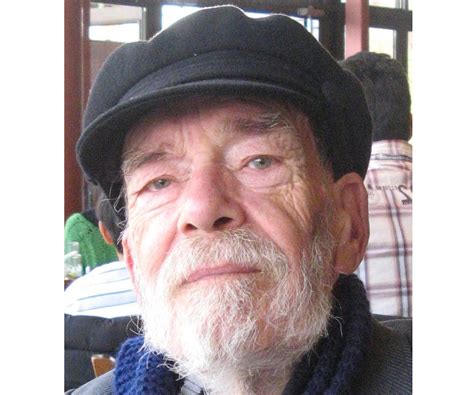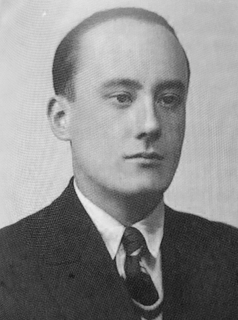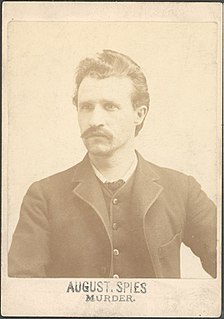A Quote by Howard Zinn
The idea of direct action against the evil that you want to overcome is a kind of common denominator for anarchist ideas and anarchist movements. I think one of the most important principles of anarchism is that you cannot separate means and ends. Anarchism requires means and ends to be in line with one another. I think this is in fact one of the distinguishing characteristics of anarchism.
Related Quotes
No doubt that anarchist ideas are frightening to those in power. People in power can tolerate liberal ideas. They can tolerate ideas that call for reforms, but they cannot tolerate the idea that there will be no state, no central authority. So it is very important for them to ridicule the idea of anarchism to create this impression of anarchism as violent and chaotic. It is useful for them.
The term anarchism has become associated with two phenomena with which real anarchist don't want to associate themselves with. One is violence, and the other is disorder or chaos. The popular conception of anarchism is on the one hand bomb-throwing and terrorism, and on the other hand no rules, no regulations, no discipline, everybody does what they want, confusion, etc. That is why there is a reluctance to use the term anarchism.
If we trace origins of anarchism in the United States, then probably Henry David Thoreau is the closest you can come to an early American anarchist. You do not really encounter anarchism until after the Civil War, when you have European anarchists, especially German anarchists, coming to the United States. They actually begin to organize. The first time that anarchism has an organized force and becomes publicly known in the United States is in Chicago at the time of Haymarket Affair.
Despite the popular idea of anarchists as violent men, Anarchism is the one non-violent social philosophy.… The function of the Anarchist is two-fold. By daily courage in non-cooperation with the tyrannical forces of the State and the Church, he helps to tear down present society; the Anarchist by daily cooperation with his fellows in overcoming evil with good-will and solidarity builds toward the anarchistic commonwealth which is formed by voluntary action with the right of secession.
If I rule out violent anarchism, there remains pacifist, anti-nationalist, anti-capitalist, moral, and anti-democratic anarchism (i.e., that which is hostile to the falsified democracy of bourgeois states). There remains the anarchism which acts by means of persuasion, by the creation of small groups and networks, denouncing falsehood and oppression, aiming at a true overturning of authorities of all kinds as people at the bottom speak and organize themselves.
Odonianism is anarchism. Not the bomb-in-the-pocket stuff, which is terrorism, whatever name it tries to dignify itself with, not the social-Darwinist economic 'libertarianism' of the far right; but anarchism, as prefigured in early Taoist thought, and expounded by Shelley and Kropotkin, Goldman and Goodman. Anarchism's principal target is the authoritarian State (capitalist or socialist); its principle moral-practical theme is cooperation (solidarity, mutual aid). It is the most idealistic, and to me the most interesting, of all political theories.



































